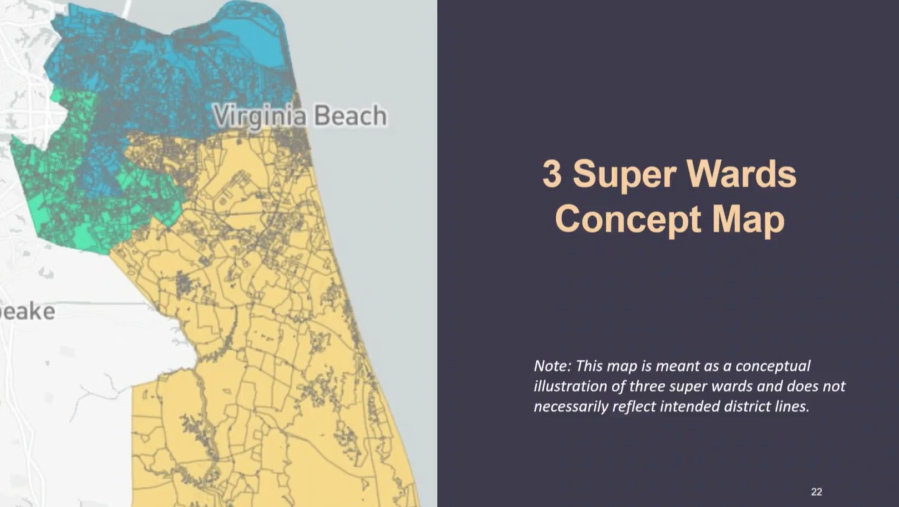VIRGINIA BEACH, Va. (WAVY) — Change is coming for how voters in Virginia’s most populous city elect their leaders — and there isn’t much time to debate what exactly that change is going to look like.
Virginia Beach City Council must either approve or reject a plan for a new voting system by June 15 in order to comply with a settlement agreement they have reached with residents who successfully sued to have the current voting system abolished.
Since 1996, any registered voter could vote for all 11 City Council and school board members regardless of which seven districts they live in.
In March, a federal judge ruled the system violates the Federal Voting Rights Act of 1965 by denying “Hispanics, African Americans, and Asians equal access to the electoral and political process.”
Since the ruling, lawyers with the city, outside counsel and mayor and vice mayor, have been meeting with lawyers for the plaintiffs to come up with plans for a settlement.
Tuesday was the first time Deputy City Attorney Christopher Boynton revealed the proposed plan publicly.
City Council would remain an 11-member body, but only the mayor would be elected by voters city-wide. The remaining 10 members would come from seven wards and three super wards.
The seven wards would be akin to the seven districts the city currently has. Only those living in the district could vote for their council person or school board member.
The three super wards would split the city into three larger districts. Again, only those who live in the super wards could vote for the super ward representative.
Under the settlement proposal, three of the districts would have to be “minority opportunity districts” and the court would get the final say.
That plan would also come with a $1.6 million price tag to pay the plaintiff’s attorney’s fees.

The City Council’s other option is to reject the settlement proposal and appeal the court’s ruling.
However, as Boynton pointed out, a recently passed state law makes returning to the current system impossible anyway and under appeal, the court could impose its own system of voting that the city has no input in.
Boynton believes the court would likely impose a 10-district, one at-large system. The city would also be on the hook for $3.88 million.
Mayor Bobby Dyer supported moving forward with the settlement proposal.
“I think personally we have to avoid a 10-1 system,” Dyer said.
Citizens will have the chance to weigh in on a public hearing June 8 and at several other yet-to-be-determined dates.










































































































